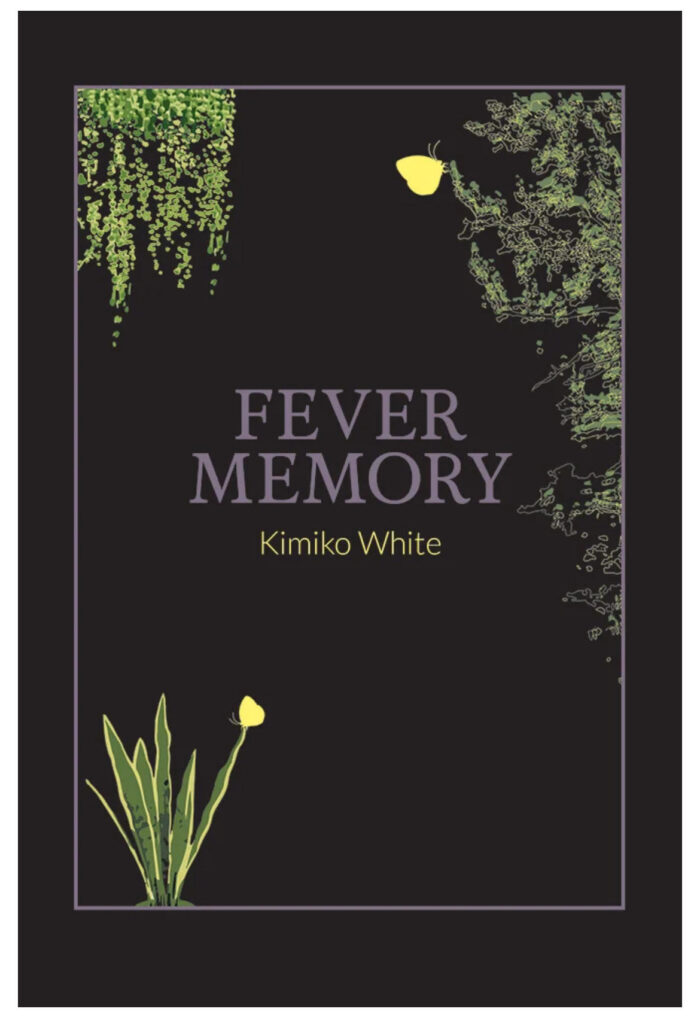In this interview, we delve into the poetic world of Kimiko White, the talented author behind “Fever Memory.” Through heartfelt verses, Kimiko captures the essence of self-discovery, resilience, and the beauty found in life’s tribulations. Inspired by personal experiences and influenced by renowned poets like Langston Hughes, Kimiko shares insights into their creative process, the significance of their work’s themes, and the journey of crafting this captivating collection. Join us as we explore the depths of poetry and the power of introspection with Kimiko.

What inspired you to write “Fever Memory” and delve into the theme of starting over?
“Fever Memory” delves into the idea of reinvention and fresh starts, exploring the pressure to persist in a situation simply because of prior investment.
Could you tell us about the significance of the title “Fever Memory”? What does it mean to you personally?
The title “Fever Memory,” refers to the concept of a “Fever Dream,” which is a term often used to describe vivid, bizarre, or surreal experiences that occur during a fever. These dreams can be intense and may include strange or distorted perceptions, hallucinations, or a sense of unreality. This book touches on the parts of my experiences that felt unreal or of distorted perception.
Your collection emphasizes the beauty of nature, tribulation, and change. How do these themes intertwine in your poetry, and why did you choose to focus on them?
I like to write about natural occurrences. Change and tribulation is inevitable and nature changes all the time – I want people to understand that there is beauty in these things. I chose to focus on them because it’s so easy to fuel art from pain but pain can become addicting if it fuels you. Finding the beauty in your pain will heal your wounds – finding beauty in the small things will change your perspective.
In your book, you mention a “new-found hope the size of a mustard seed.” Can you elaborate on what this metaphor means to you and how it influences your poetry?
In the Bible, Matthew 17:20-21 says, “For truly I tell you, if you have faith the size of a mustard seed, you will say to this mountain, ‘Move from here to there,’ and it will move; and nothing will be impossible for you.” This book is cultivated from my faith that started off small. I had daydreams of writing a book but never had an actual plan, I didn’t even like sharing my poetry with people. My mustard seed-sized faith was telling The Most High that I had book titles in mind. After that, He laid down the path for me to succeed more than I could have ever imagined.
How do you hope readers will connect with your poetry on a personal level? What do you want them to take away from reading “Fever Memory”?
I hope that people will connect with my work in ways that feel familiar to them. I want people to feel like they’re not alone, every experience is shared and it’s worth exploring.
Can you share a bit about your journey of self-discovery and how it influenced the creation of this collection?
I will always be a student to the world and its experiences. I’m not in a rush to find myself. I go where The Most High places me – sometimes where I want to go is not where I need to be in all aspects. I am confident in my vulnerability and content in my decisions.
What poets or authors have influenced your writing style and the themes explored in “Fever Memory”?
Langston Hughes has always been a big inspiration of mine. I love the way he is still able to connect with audiences even after his passing – he was his own audience and people who are like him are able to understand the message. I gravitate towards artists that have the same feel to it like Marvin Gaye. Marvin Gaye was a huge inspiration to this poetry collection as well, with song references sprinkled throughout the book.
Could you discuss your creative process when crafting these poems? Do you have any particular rituals or habits that help you find inspiration?
There is no creative process. I have my pen, my book, and my thoughts — we intermingle and see what we come up with. If a poem works, it works, if a poem doesn’t work at the moment, it’ll find its place and its season in due time. I don’t force myself to write, I only write when it comes to me.
Are there any specific poems or lines in “Fever Memory” that hold particular significance for you? If so, why?
The second half of the collection, II. The Art of Perseverance, holds significance for me because this is where the book changes perspective. “Fever Memory” starts with an external perspective of the things that were going on at the time, whereas the second half of the book is more internal and dives into concepts of family, and personal changes.
What advice would you give to aspiring poets who are looking to explore themes of growth, hope, and self-discovery in their own work?
My advice would be to be honest with yourself and your experiences – trust the process and don’t be afraid to take breaks when discovering your own feelings. These things are heavy, your experiences, feelings, and thoughts are valid and most importantly they are yours. You have to live with these feelings, give it a safe space to live – or let them go in peace.
Kimiko would also like to share that she hosts open mic every Monday evening 7PM PST on her Instagram.
You can buy your copy of Fever dreams here:







Such an amazing and inspiring author. Her work is absolutely incredible!